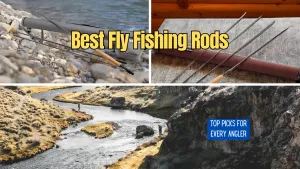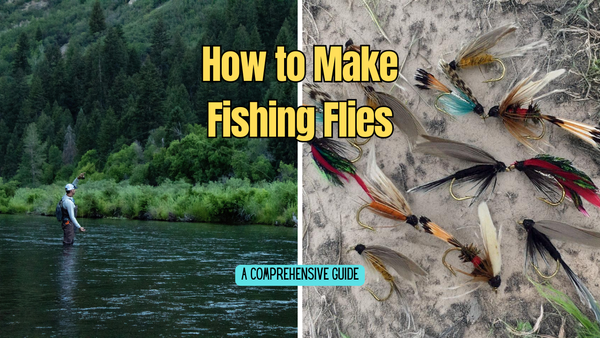When preparing for a camping trip, selecting the right tools can make all the difference. While a camping axe might seem like a staple for any outdoor adventure, it's not without its drawbacks. This article delves into the less-discussed cons of using a camping axe, providing outdoor enthusiasts with a clearer picture of when and why to possibly leave that axe at home.
Key Takeaways:
- Safety Concerns: The inherent risks of using a sharp and heavy tool like a camping axe.
- Practical Limitations: Situations where a camping axe may not be the most effective or convenient tool.
- Environmental Impact: How improper use of a camping axe can negatively affect the natural surroundings.
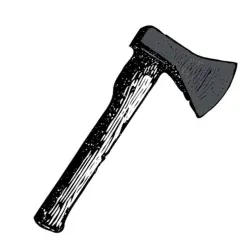
Safety First: The Risks of Handling a Camping Axe
Handling a camping axe requires skill and caution. The sharp blade, combined with the force needed to chop or split wood, can lead to serious injuries if not used correctly. Every year, mishaps involving axes result in cuts or worse, often due to improper handling or overestimation of one's chopping abilities. For those not experienced in wielding such tools, a camping axe can turn a peaceful outdoor retreat into a trip to the emergency room. The cutting edge of an axe head can also be dangerous if not packed and stored properly.
Moreover, the weight and balance of a camping axe, such as a full-sized axe or a heavy axe, demand physical strength and stamina. This can lead to fatigue, which increases the likelihood of losing control and causing an accident. The need for vigilance and physical exertion makes the camping axe a less-than-ideal tool for many campers, especially for those who value safety above all.
The Burden of Weight and Space
One of the significant drawbacks of carrying a camping axe is its weight. For backpackers or those involved in car camping, the heft of a traditional axe can be cumbersome. Axes like the Council Tool Boy’s Axe or a Husqvarna hatchet, while known for their quality, add considerable weight to one’s pack. This can be a critical disadvantage when trying to keep gear light and manageable.
Additionally, the space that a camping axe occupies could be used for other essential items. In scenarios where every cubic inch of pack space matters, dedicating a substantial amount to an axe might not be the best use of resources. Alternatives like a small hatchet or a multi-tool with different functions might offer more utility without the bulk.
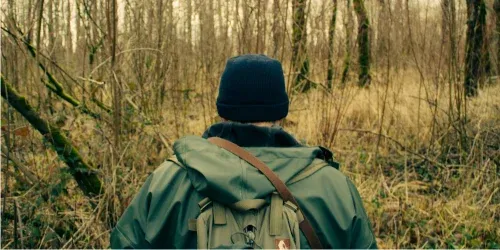
Limited Utility in Certain Environments
Not all camping environments necessitate the use of a heavy-duty axe. In areas where gathering large logs or chopping big pieces of wood is unnecessary or not allowed, carrying an axe may simply be over-preparing. Tools such as a small hatchet or even a sturdy knife might be sufficient for handling smaller branches or preparing kindling.
Furthermore, in environments where wood is damp or where there are predominantly smaller trees, an axe may not perform well. The effort to fell trees or split wood with a heavy axe or a splitting maul in these conditions can be frustrating and inefficient, leading to wasted effort and potential tool damage.
Environmental Considerations
The impact of using a camping axe on the environment can be significant. Chopping or damaging live trees is often prohibited in many camping areas to preserve natural habitats and maintain the health of the forest. Campers wielding axes might unintentionally harm vegetation or disrupt wildlife habitats, leading to ecological imbalance.
Responsible outdoor enthusiasts must consider the broader implications of using such a powerful tool in nature. Opting for eco-friendlier alternatives or adhering to the 'leave no trace' principles can often be more aligned with sustainable camping practices.
Alternatives to the Camping Axe
Exploring alternatives to the traditional camping axe can lead to safer and more efficient camping trips. Tools like a lightweight hatchet, a durable multi-tool, or even portable saws can provide the necessary functionality for most camping needs without the drawbacks of a full-sized axe.
Purchasing firewood instead of chopping it yourself can be a game-changer for many campers. Firstly, it saves a significant amount of time and energy. Chopping wood requires not only physical strength but also the right tools and a considerable amount of time. By buying pre-cut firewood, you can immediately enjoy the warmth and ambiance of a fire without the labor-intensive preparation.

Additionally, purchased firewood is often properly seasoned and dried, ensuring it burns more efficiently and cleanly than wood that might not have been adequately prepared. Splitting wood that is still a little green requires much more effort and usually results in a very smoky campfire. Lastly, buying firewood can be a more sustainable option as reputable suppliers often source their wood from sustainably managed forests, contributing to the conservation of natural resources.
These alternatives not only reduce the risk of injury but also offer more control and precision in cutting tasks. For instance, a small hatchet or a knife can be more manageable for one-handed operation, providing more control and less fatigue.
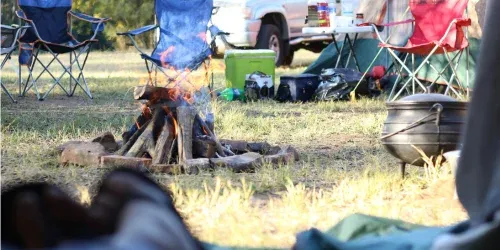
Summary
While a camping axe can be a powerful ally in the wilderness, its disadvantages are significant. From safety risks and practical limitations to environmental concerns, the cons of using a camping axe are varied and worth considering. By understanding these drawbacks and exploring lighter, more versatile alternatives, campers can enjoy a safer and more environmentally conscious outdoor experience.
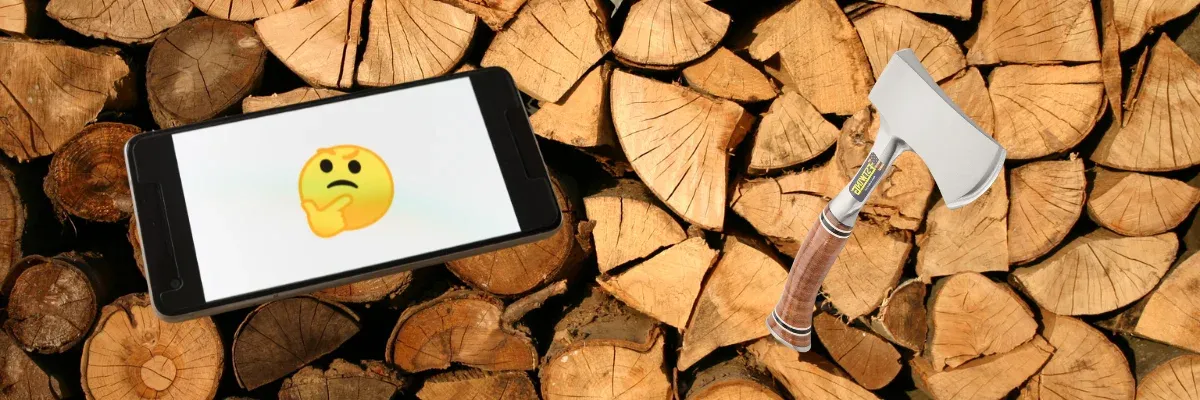
FAQs
What are some safe alternatives to using a camping axe?
Safe alternatives include using a small hatchet with a light head, a multi-tool with a cutting blade, or a compact saw. These tools offer more control and are generally lighter, making them safer and more suitable for various camping tasks.
How can I minimize the environmental impact while using a camping axe?
To minimize environmental impact, use the camping axe only on dead wood or fallen branches. Always follow local guidelines and the principles of 'leave no trace' to ensure that your camping practices do not harm the natural environment.
Is a camping axe necessary for all types of camping?
No, a camping axe is not necessary for all types of camping. Its necessity depends on the nature of the camping location and the specific needs of the trip. In many cases, lighter and smaller tools can be sufficient and more practical.
Related articles:



